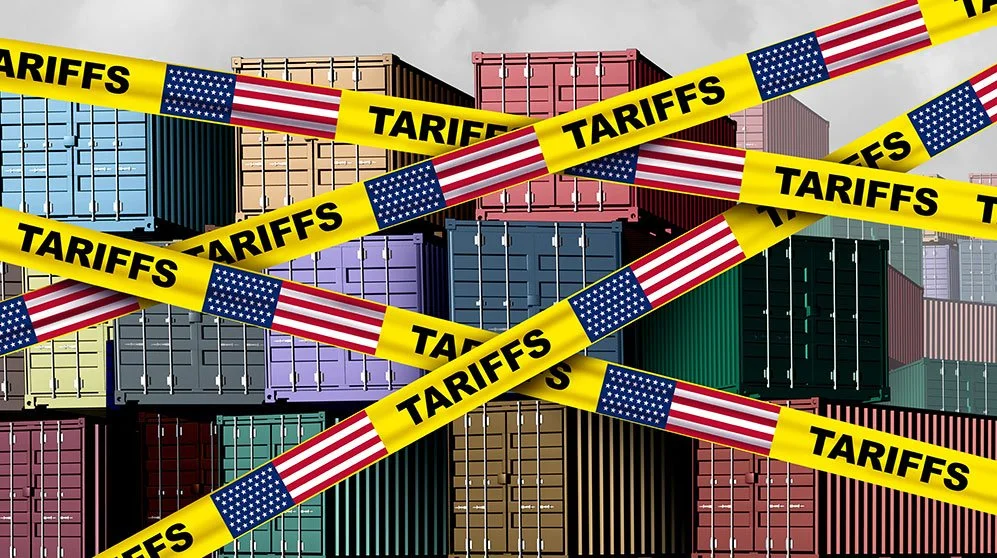Rethinking Tariffs: A Progressive Case for Ethical Trade
For too long, tariffs have been dismissed as blunt instruments of protectionism. But in an era defined by climate crisis, labor exploitation, and rampant overconsumption, it’s time for progressives to recognize tariffs for what they can be: high-impact tools to advance care for people and planet—at home and abroad.
Why I’m a Progressive Who Supports Tariffs
I’m strongly pro-tariff. That may sound unusual coming from a liberal progressive, but in today’s fractured policy landscape, principled trade levers offer rare common ground across ideological lines.
Let’s be clear: I’m not defending the erratic, politically motivated tariffs of the Trump era. Those lacked long-term planning, strategic foresight, and diplomatic grounding. But when designed with intention, tariffs can be transformative—not just economically, but socially and environmentally.
Learning from Our Past: Labor Rights and National Values
The U.S. reached global economic prominence through exploitation—including slavery—but it also became a global leader in labor protections. After the 1911 Triangle Shirtwaist Factory fire, which killed 146 mostly immigrant women, New York passed sweeping reforms that set a national standard. Many of those protections were later embedded in federal law through the New Deal.
Frances Perkins, shaped by that tragedy, became the first female Secretary of Labor and a pioneer of these protections. We owe her legacy a revival in the modern trade agenda.
““When we outsource production to countries that allow child or forced labor, we’re shifting the moral and economic cost to vulnerable workers. We’re also undermining American workers who are asked to compete with supply chains built on exploitation.””
Exploitation Abroad Is Subsidizing Overconsumption at Home
When we outsource production to countries that allow child or forced labor, we’re shifting the moral and economic cost to vulnerable workers. We’re also undermining American workers who are asked to compete with supply chains built on exploitation.
Laws like the Uyghur Forced Labor Prevention Act—passed with bipartisan support—show what’s possible. They’re not only morally necessary, they’re about fairness: you cannot compete in a global market with slave labor.
The Cost of Consumption: Environmental Limits and Economic Waste
American consumption patterns are both environmentally and economically unsustainable. With less than 5% of the world’s population, we account for nearly a third of global material consumption and one-eighth of the world’s waste.
We already have enough clothing to outfit eight future generations. And yet, Americans buy five times more than they did in 1980, wearing each item fewer than ten times. In our own household, Trump’s tariffs nudged us toward better habits: we sourced secondhand furniture, reducing both costs and emissions. That’s the kind of win–win behavior smart tariff policy can catalyze.
What Good Tariff Policy Looks Like
To be effective, tariffs must reward ethical production and penalize exploitation. When I tried sourcing ethical textiles from Bolivia for U.S.-based manufacturing, punitive tariffs undercut the exact kind of trade we should be promoting.
Smart tariffs must be phased in alongside investments in workforce development, infrastructure, and domestic capacity. They should align with what can realistically be produced in the U.S.—short-, medium-, and long-term.
Tariffs as Tools of Diplomacy and Strategic Alignment
Tariff policy must also reflect diplomatic priorities. Blanket tariffs on allies—like Canada, Mexico, and the EU—only weaken the partnerships critical to global peace and climate progress. For the U.S. to lead with credibility, our trade policy must align with our professed values: labor rights, sustainability, and justice.
““For the U.S. to lead with credibility, our trade policy must align with our professed values: labor rights, sustainability, and justice.””
Aligning Trade with What Really Matters
We don’t need bigger homes—we need more durable, affordable housing.
We don’t need more cars—we need equitable, multimodal transit.
We don’t need seasonal wardrobes—we need fresh produce in food deserts and climate-resilient infrastructure.
A Call to Action
Tariffs can serve as a lever to level the economic playing field while centering community well-being and planetary sustainability. Congress and the administration should embrace targeted, values-aligned tariffs that penalize exploitation and incentivize dignified, sustainable production—paired with strategic investment to rebuild domestic capacity in sectors where the U.S. is poised to lead.
Now is the time to trade differently—and trade better.
About Rebecca Ballard
Rebecca Ballard is a Washington, D.C.–based social impact entrepreneur working at the intersection of sustainable fashion, ethical trade, and inclusive real estate development. A recognized leader in conscious fashion, she has advised mission-driven brands, shaped federal policy, and developed one of the first briefings for U.S. congressional staff on the fashion industry's global footprint. Rebecca previously served as a labor and employment attorney at the U.S. Department of Commerce and contributed her expertise to the U.S. Customs and Border Protection’s Forced Labor Working Group. Today, she brings that same systems-level thinking to her work as an impact-oriented real estate developer—creating community-rooted spaces that reflect her deep commitment to justice, dignity, and sustainability.


